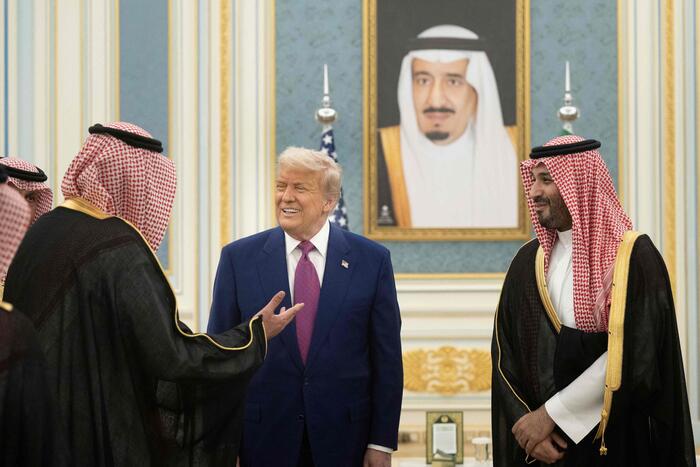From a big voice heavy with threats against historic trading partners, to something like “Dear friend I write to you,” President Donald Trump has announced that 150 letters will be sent to as many countries on which he will unilaterally impose new tariffs. The initiative stems from the White House’s sudden realization that it cannot reach an agreement individually with trading partners. This is not just a “difficulty,” but a change of strategy.
Breaking the news is the president himself, who, speaking with sheikhs in the United Arab Emirates, said that there are simultaneously 150 countries that want to make a deal, but that it is not possible to meet everyone. That is why Secretary of Treasury Scott Bessent and Secretary of Commerce Howard Lutnick will “send letters informing countries that tariffs will be imposed on their imports to the United States.” The letters will be sent in the next two to three weeks.
The shift from aggressive public rhetoric to a more structured but still assertive strategy is an important transformation that highlights how dialogue between trading partners has turned into a unilateral order.
Most countries trading with the United States face a 10 percent base tariff on their products after Trump announced on April 9th a 90-day pause on much higher import taxes first introduced on April 2. As a result, everyone is trying to make trade agreements with the Administration to avoid higher tariffs being imposed again when the pause expires in the first week of July.
So far, the White House has announced trade agreements only with the United Kingdom and a nebulous pact with China. In the case of London, Washington keeps in place a 10 percent tariff on most British imports, but exemptions are included for British cars, engines, steel and aluminum. In the agreement with Beijing, reached last weekend in Geneva, Chinese and U.S. officials agreed to reduce their tariff rates by 115 percentage points for 90 days and to engage in further trade talks in the near future.
According to the White House, this new stance does not indicate a softening, but is part of a more disciplined strategy to make U.S. protectionism more structural, and impersonal. The letters will create preemptive diplomatic pressure to avoid the trade battle.
Donald Trump has built his leadership image on the myth of being a master dealmaker. But today, with the letters that Bessent and Lutnick will send, his approach to international trade has changed dramatically: no more negotiations. The man who has repeatedly boasted of his ability to make deals has suddenly changed: Trump no longer seeks deals, he imposes them. The shift from the logic of the “deal” to the politics of letters highlights this evolution by transforming from a negotiator to a regulator who dictates conditions with the goal no longer of getting a better deal, but of rewriting the rules according to American interests; a game-changing approach for everyone. Faced with the “new” Trump, Europe, China, Mexico, and other partners could respond with retaliation, fueling a season of trade wars. Or they could give in, accepting the new configuration desired by Washington. In either case, the global trade balance is bound to change significantly.












